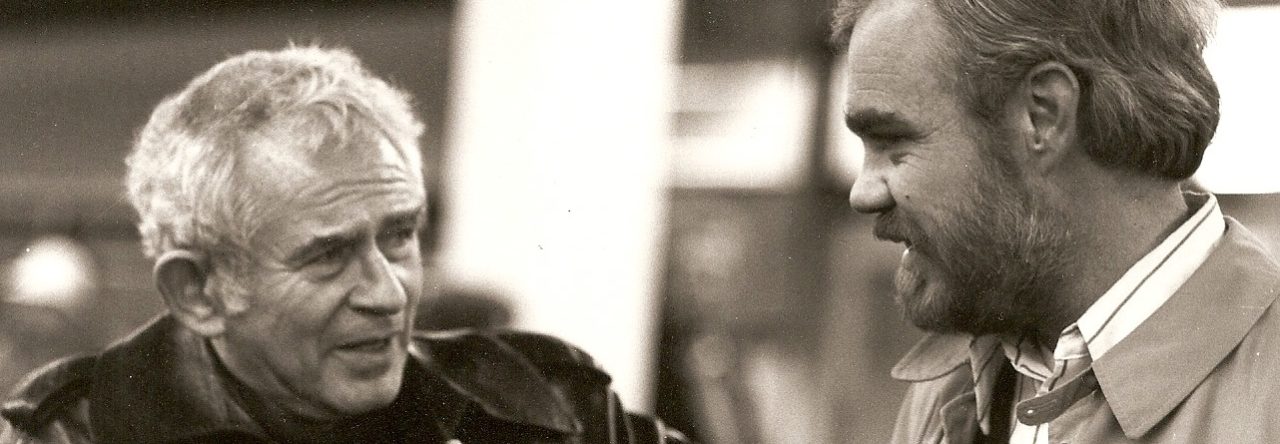It could be said that Norman Mailer was a man and a writer halfway between fame and infamy and yet with little in the way of middle ground. He was, in varying combinations, a world-class drinker, feuder, provocateur, self-mythologizer and anti-feminist. He was a war protester, a mayoral candidate, a co-founder of The Village Voice, as well as a wife stabber, a serial husband (of six wives), and a father (of nine). He was a boxer, an actor, a filmmaker, a poet and a playwright. He was also a journalist and a novelist of enormous and singular narrative inventiveness and thrust, a two-time Pulitzer Prize winner, and one of the least boring and most tireless and tiresome public figures of the last half of the 20th century.
“Detailed and anecdotal without being gossipy (a yarn concerning a nicotine-addicted cat notwithstanding) and a must-read for students and admirers of Mailer’s work.”
Norman Kingsley Mailer, the author of more than 40 books, encompassing fiction, journalism, poetry, essays, and interview collections, was a prolific and brilliant writer, but he is nearly as well known for his charisma and instigative prodding, his mayoral candidacy and threatened presidential run, his love of boxing, his insatiable promiscuity, and his penchant for settling scores with a firm head-butt. These competing facets of his personality—at once his greatest asset and his hopeless Achilles heel—created fantastic and inspired friction in all aspects of his life.
J. Michael Lennon wrote to his hero in 1972 and became his pen pal, friend, and collaborator before writing the revealing new biography Norman Mailer: A Double Life.
Excerpt from a review of Ancient Evenings in the Springfield State Journal-Register, 4-17-83
In 1972, with twenty books behind him, Norman Mailer began to disengage from contemporary America, and started work on a novel that he hoped would “transcend the domination of actual events. The break was neither swift nor absolute, however. From 1972 to 1980 he published five books on four famous-infamous Americans: two on Marilyn Monroe, and one each on Muhammad Ali, Henry Miller and Gary Gilmore. Between spurts of work on these biographical books (which paid the bills), he labored deliberately on Ancient Evenings, a huge novel set in the Egypt of the 19th and 20th Dynasties (1290-1100 B.C.). Shell-shocked by the sixties, and depressed by the seventies, Mailer still understood that he would not be able to escape the temptation to speak directly to his time unless he chose a setting alien to Western culture, a setting so remote that historical memory could barely reach it, so far back in time as to stop it.
His original idea had been to write about Rome, Greece and Egypt, and he even made a trip to the Mediterranean to pick up some atmospherics. He never got past Egypt. Mailer was not impressed with present-day Egypt, but he immediately recognized what his extensive research confirmed: the Egypt of 3,000 years ago was swimming in religiosity, awash in faith. The citizens of Thebes and Memphis believed unreservedly in the Gods, and not as remote overseers, but as forces and presences in the smoke of the hearth and the mud of the Nile. Their nation was not a theocracy like Geneva or Plymouth Bay Colony; the priests were in liege to the pharaoh and he himself was a God. The reign of Ramses II, in which most of the action of Ancient Evenings takes place, is invested in magic and ceremony, blessings and curses. It was not a starched or stingy religion that these ancient Egyptians practiced, but a dynamic one, alternately graceful and fierce, always fervent. There was no separate secular life. The intrigues and projects of the Gods were manifested in the Egyptians’ prayers, fornications, marriages, and battles. Religion and sex, love and war: these are the four of the novel’s chief concerns.
There has been debate on whether Mailer’s greatest achievements are in fiction or nonfiction, but it is clear that he was ambidextrous, so to speak, excelling in both. I lean slightly toward his nonfiction in my picks.
Featured in Shelf-Awareness.

